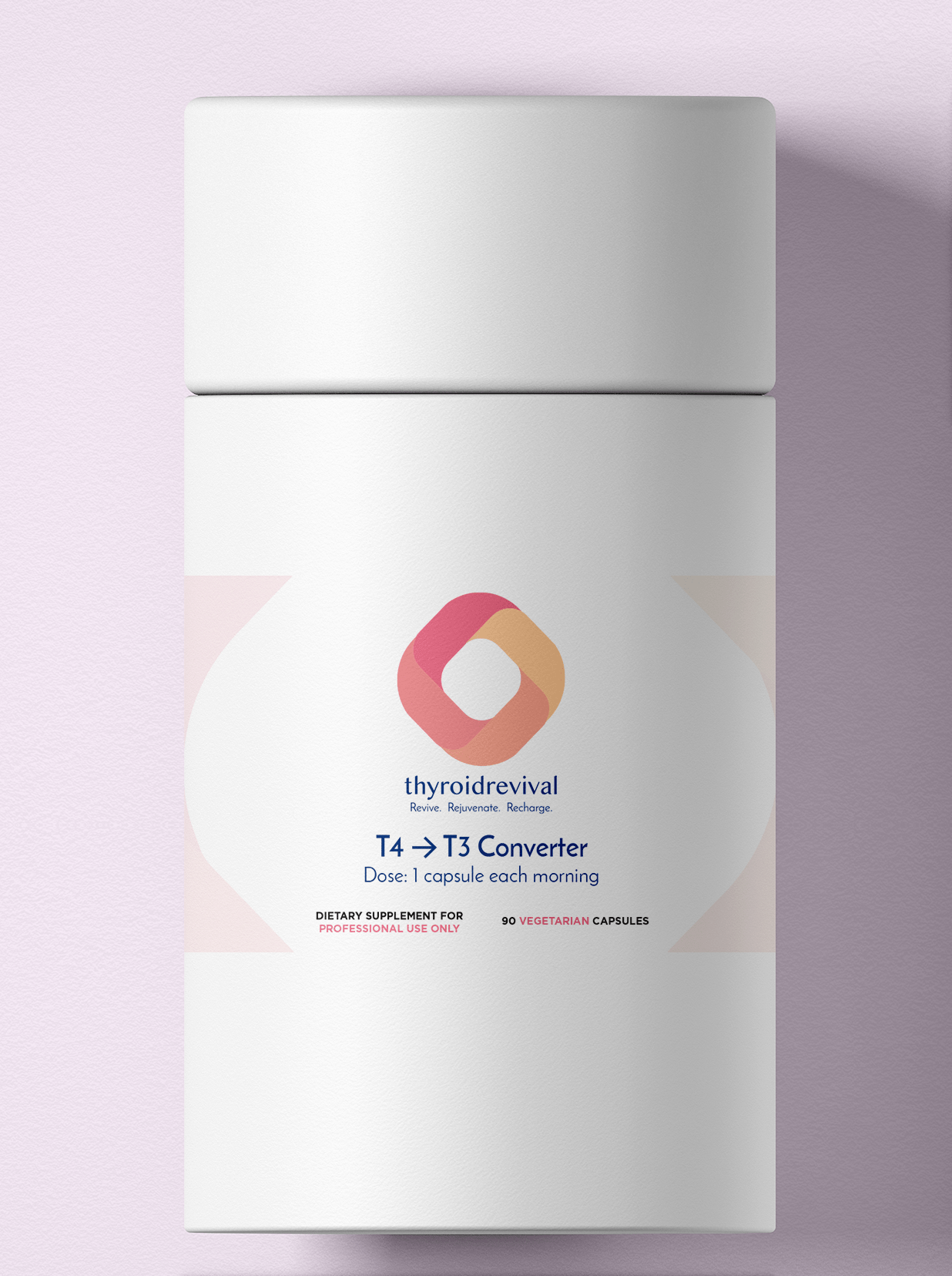T4 to T3 Conversion | Why Is This Important to Thyroid Health?
T4 Definition: This is also called thyroxine and is a major hormone produced by the thyroid gland. It controls how the body uses or metabolizes energy together with T3. T4 is the main definitive hormone of thyroid conditions like hyperthyroidism and hypothyroidism.
T3 Definition: This is also called triiodothyronine. Together with T4, it regulates the body’s metabolism, temperature, and pulse rate. It is assessed in laboratory tests to determine thyroid function and the possibility of hyperthyroidism.
TSH or thyroid-stimulating hormone Definition: This is released by the pituitary gland in the brain and is the hormone that signals the thyroid to produce T3 and T4 into the bloodstream.
TRH or thyrotropin-releasing hormone Definition: This is also called thyroliberin or thyrotropin-releasing factor. It is released by the hypothalamus in the brain to signal the anterior pituitary gland to produce the thyroid-stimulating hormone or TSH and prolactin.
The Gist
Doctors tend to look first to TSH and T4 levels when looking for the cause of symptoms like fatigue and weight gain. But, some research indicates that these do not give the whole picture when it comes to thyroid function.
Not all hypothyroid issues come down to insufficient TSH or low T4 syndrome. Instead, the issue may be linked to the body’s conversion of T4 to usable T3 hormone.
How Thyroid Hormone Production Works
The body produces thyroid hormones through a series of interactions between glands and other organs. It starts in the hypothalamus, which creates chemical messages for the pituitary gland via thyrotropin-releasing hormone (TRH).
The pituitary gland, in turn, releases thyroid stimulating hormone (TSH). This TSH then travels to the thyroid gland to tell that gland to create T4 and T3.
The thyroid gland produces both T3 and T4. But, it produces far more of the latter, with only about 6% of thyroid hormone production consisting of T3. T3 is the type of thyroid hormone the body can use for essential metabolic functions.
T4 travels through the body bound by proteins until it can reach the cells. It is then released, leaving T4 free to be converted into usable T3. The liver produces about a fifth of the body’s T3.
An additional fifth is produced by the small intestines. The rest of the T3 the body needs is produced by the muscles, heart tissue, and nerves.
In most people, only about 60% of the T4 created by the thyroid is converted into usable T3. This number can drop even lower when the body is experiencing trauma or excessive stress.
Causes of T4 to T3 Conversion Problems
There are a few factors that can inhibit the body’s ability to properly synthesize T3 out of free T4. Some are dietary, while others are linked to other underlying health conditions.
A few of the most common reasons for problems with T3 conversion:
- Gastrointestinal issues. Conditions such as leaky gut syndrome and candida overgrowths can lead to mineral absorption problems. This, in turn, can inhibit the conversion of T4 to T3.
- Mineral deficiencies. The body needs both zinc and selenium to stimulate the conversion of T4 to T3. Testing for deficiencies is a good step for those who suspect they may be missing these key minerals.
- Liver problems. About 20% of the body’s T3 conversions occur in the liver. Poor liver function can mean lower T3 levels.
- Interactions with medications. Many people with thyroid issues take medication that could make thyroid problems worse. For instance, someone with Grave’s disease may take a beta blocker to manage heart palpitations. The beta blocker can get in the way of T3 synthesis.
If someone is taking T4 supplements Oroxine but are not experiencing symptom relief, a conversion problem may be to blame. Having a doctor test for T3 levels, as well as vitamin deficiencies and other issues, can help pinpoint the cause.
Factors Affecting T4 to T3 Conversion
- Chronic stress caused by illness or other environmental factors may affect the conversion of T4 to t3.
- Bacterial or viral infections that cause inflammation or swelling of tissues also disrupt the thyroid hormone process.
- Anemia deprives the red blood cells of oxygen, affecting all bodily functions they are involved in, hormone production included.
- Serotonin and dopamine deficiencies affect communication between the thyroid and the brain. The deficiency may result from a lack of enough sleep, rest, or unbalanced diet.
Ways to Support Healthy Thyroid Hormone Conversion
If thyroid function tests show low T3 levels paired with adequate levels of T4, a conversion issue could be the cause. Many doctors will address the issue by simply prescribing synthetic or natural T3, and Thyroid Support System by Dr. Seeds and Armour Thyroid are common supplements.
Addressing the underlying issues that contribute to poor T3 production can provide more lasting and effective solutions. Patients who suspect a mineral deficiency can talk to their doctors about getting their levels tested.
Increasing dietary levels of Omega 3 fatty acids is good for liver and gastrointestinal health. These can be found in nuts, seeds, and cold water fish like salmon. Other sources include the following:
- soybean oil
- flaxseed oil
- tuna
- mackerel
- sardines
- herring
- chia seeds
- cod liver oil
- caviar
- anchovies
- oysters
- kidney beans
- edamame beans
- hemp seeds
- algae and seaweed
- rainbow trout
- shrimp
- seabass



Reviews
There are no reviews yet.